Goering: Poland
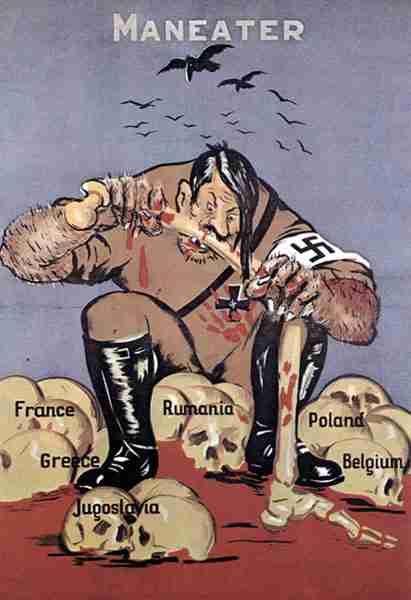
Dr. Stahmer: During the period from 1935 to 1938 you made many state visits to Poland. What was the purpose of these visits?
Goering: After German-Polish relations had been clarified in 1934, the Fuehrer wished a strengthening of that pact and the creation of a better atmosphere. He requested me to take over this task because he believed that I would find it easy to talk to these Polish gentlemen, which was indeed the case.
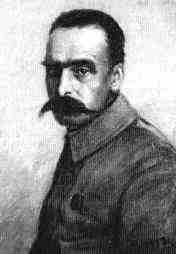
But the decisive factor is that he did not say, "Lull Poland to sleep. I am going to attack Poland afterwards." It was never the case, that from the very beginning, as has often been represented here, we got together and, conspiring, laid down every point of our plans for decades to come. Rather, everything arose out of the play of political forces and interests, as has always been everywhere the case, the whole world over, in matters of state policy. I had this task, and I consciously considered it a serious task and carried it out with an honest belief in it. Consequently, when the clash with Poland came about it was not a very pleasant situation for me.
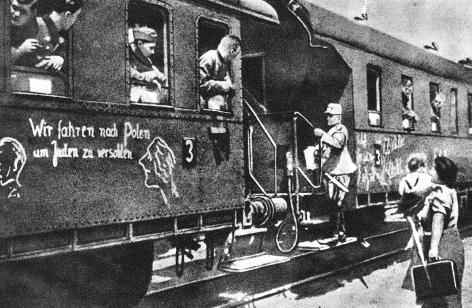
Goering: My attitude was always unequivocal. It was that Danzig and the Free State, as purely German territory, should at some date in the near future return to Germany. On the other hand, we certainly recognized that Poland should have access to the sea, and also a port. Consequently, our first thought was that the Free State and Danzig should be returned to us and that through the Polish Corridor there should be a German traffic lane. That was a very small and most modest demand that for a long time was considered absolutely necessary and seemed to us quite possible.
Dr. Stahmer: Another conference with the Fuehrer took place on 23 November 1939. The record of that conference is Document Number 789-PS, which was submitted to the Tribunal. I ask you to look at this document and then to tell me briefly what your attitude is toward the subject of this conference.
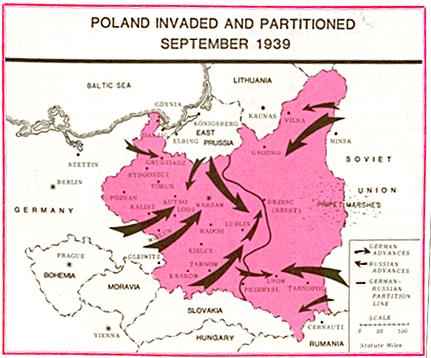
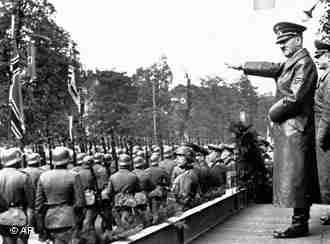
But this was at a time when he still believed that he could carry it through. Therefore he called the commanders-in-chief together and informed them about the orders for attack. It was one of the speeches customarily made in such cases. Naturally, since the Fuehrer was not only a military man but above all a politician, it always happened that these military speeches, which a soldier would have confined exclusively to the military-strategic field, were always to a large extent filled with references to his political views and his political tendencies or intentions. It must never be forgotten that he gave such speeches not only as the Commander-in-Chief or the Supreme Commander of the Armed Forces, but also as the head of the German State; and that is why so frequently there was such a strong political tendency even to the military speeches.
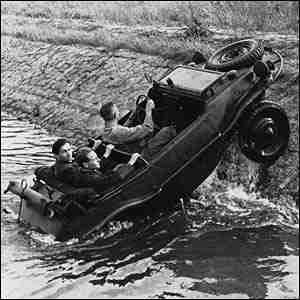
And if--this I emphasize since it has often played a role here--if a general had been able to say, "My Fuehrer, I consider your statements wrong and not in keeping with the agreements we have made," or "This is not a policy of which we can approve," it would have defied understanding. Not because that particular general would have been shot; but I would have doubted the sanity of that man, because how does one imagine that a state can be led if, during a war, or before a war, which the political leaders have decided upon, whether wrongly or rightly, the individual general could vote whether he was going to fight or not, whether his army corps was going to stay at home or not, or could say, "I must first ask my division." Perhaps one of them would go along, and the other stay at home! That privilege in this case would have to be afforded the ordinary soldier too. Perhaps this would be the way to avoid wars in the future, if one were to ask every soldier whether he wanted to go home! Possibly, but not in a Fuehrer State.
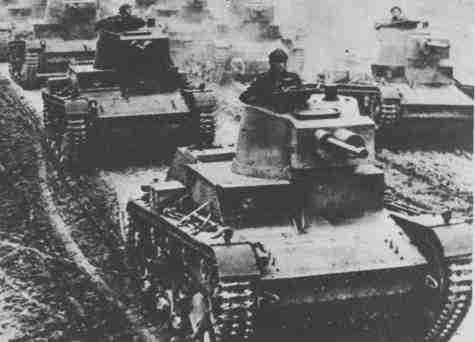
Therefore there could be no possibility that a general discussion as to right or wrong would ensue; rather the generals had already received their orders. The Supreme Commander had decided and therefore there was nothing left for a soldier to discuss; and that applies to a field marshal as well as to the ordinary soldier.
Dr. Stahmer: A Fuehrer Decree of 7 October 1939 bears your signature. In this decree Himmler is given the task of Germanizing. This decree is presented as Document Number 686-PS. Please look at this and say what the significance of this decree is?
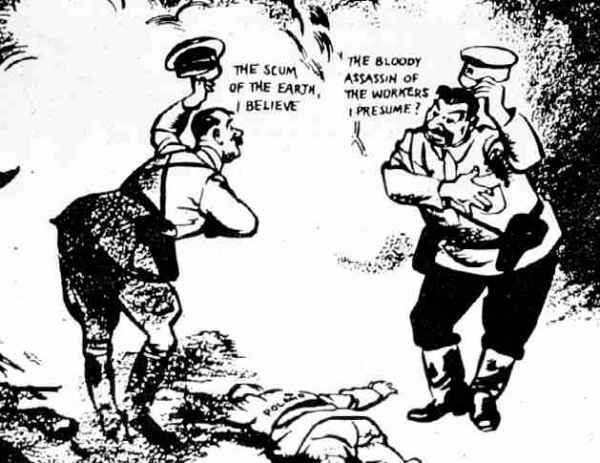
But in that territory, in the course of years, more than one million Germans who had formerly lived there, who had had property there, particularly farms, estates, et cetera, had been thrown out, expelled and dispossessed. That is quite clear from numerous complaints which during the years after 1919 had been made to the League of Nations about this matter; and a study of all these complaints and of all the events which had been reported there, which must still be in the archives at Geneva, will prove to what an enormous extent the Polonization of these German territories was carried out. This decree aimed to put an end to that and to make these territories German once more, that is, that those farms and estates from which Germans had been driven, should once more come into the hands of Germans.
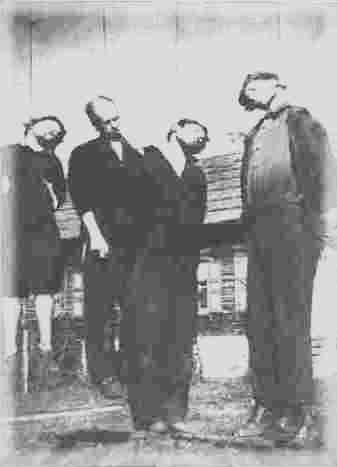
I naturally was also a signatory, since I was the Chairman of the Ministerial Council at the time, and then it was also signed by the Chief of the Chancellery, Lammers. These signatures are a matter of course. I take a very positive attitude to this; it was quite in accordance with my views, that where the Germans had been driven out from what were German territories, they should return. But I want to draw your attention to the fact that this, to be exact, is a question of former German provinces.
Dr. Stahmer: You mean the occupied western Polish provinces?
Goering: Yes. The Government, for instance, was not appointed for purposes of Germanization. If Germans later were settled there--and I am not certain of that--that was not done on the basis of this decree. You asked about my attitude to the Memel question, I believe. Danzig and the Polish Corridor, I have emphasized. Memel was a comparatively small matter. In Memel, according to the Treaty of Versailles or the League of Nations, there was to be a plebiscite. Shortly before, the Lithuanians occupied Memel and the Memel territory. In order to prevent the plebiscite Lithuania incorporated Memel and thereby produced a fait accompli.
Complaints of the German Government at that time naturally were as futile as all previous complaints to the League of Nations. What the Lithuanians had done was regretted, it was considered false and urong, but there could be no talk about returning it, or going through with the prescribed plebiscite. After the Lithuanians, in violation of all agreements, had occupied Memel, it was naturally our absolute national right to rectify this encroachment and now to occupy Memel ourselves.
Dr. Stahmer: On 19 October 1939 you published a decree which ordered the removal of economic goods from Poland. This decree has been submitted in Document Number EC-410. I should like to have your opinion on this decree.
Goering: This is a decree which represents general instructions as to what economic procedure should be adopted in the whole of the Polish territory occupied by us. It regulates the seizure and administration of property of the Polish State within the territories occupied by German troops, money and credit matters, the taking of economic measures, the preparation for a settlement with foreign creditors which would become necessary, et cetera. Confiscation was to be carried out only by the Main Trustee Office East, et cetera. It is not so much a question of the removal of economic goods. That was not the case. On the contrary, even in the Government General, the economy in existence there, that economy of course which could be used for purposes of war at that time, was strengthened and extended. Such economy as was not absolutely essential was cut down, just as in the rest of Germany and in all other states in the event of war.
As far as those raw materials are concerned which were available and were important for the conduct of the war, such as steel or copper or tin, it was my view, or better said my intention, that these raw materials should be converted into manufactured products there where they could most quickly be used for manufacture. If the locality and its transportation facilities permitted it, they should remain and be used for manufacture there. If it was not possible to use them for manufacture on the spot, I would of course not let raw materials of importance for the war lie there, but would have them brought to wherever they could most quickly be used to serve the needs of the war. That is in general, what this decree says. That was my basic attitude and my basic instruction. The object was the quickest and most purposeful use for manufacture wherever it was possible.
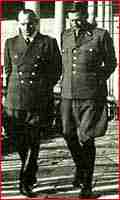
I was the Special Deputy of the Governor General of Poland, Hans Frank, for the safeguarding of art treasures in the Government General from October 1939 to September 1943. Goering gave this task to me in his capacity as the Chairman of the Committee for Reich Defense. I confirm that it was the official policy of the Governor General, Hans Frank, to take in custody all-important works of art which belonged to Polish public institutions, private collections and the church. I confirm that the mentioned works of art were actually confiscated and I am aware that, in the event of a German victory, they would not have remained in Poland but would have been used to complete German art collections."
Goering: Actually I had nothing directly to do with the safeguarding of art treasures in Poland, absolutely nothing, in my capacity as Chairman of the Ministerial Council for the Reich Defense. However, Muhlmann, whom I knew, did come to see me and told me that he was to take steps for the safeguarding of art treasures there. It was my view too that these art treasures should be safeguarded during the war, regardless of what was to be done with them later, so that no destruction would be possible through fire, bombing, et cetera. I want to emphasize now--I shall refer to this matter again later in connection with France--that nothing was taken from these art treasures for my so-called collection. I mention that just incidentally.That these art treasures were actually safeguarded is correct, and was also intended, partly for the reason that the owners were not there. Wherever the owners were present, however--I remember Count Potocki of Lincut, for instance--the art collections were left where they were. The Fuehrer had not yet finally decided what was to be done with these art treasures. He had given an order--and I communicated that by letter to Muhlmann and also, as far as I remember, to Frank--that these art treasures were for the time being to be brought to Koenigsberg. Four pictures were to be taken to the safety "bunker" or the safety room of the German Museum in Berlin or to the Kaiser Friederich Museum in Berlin.
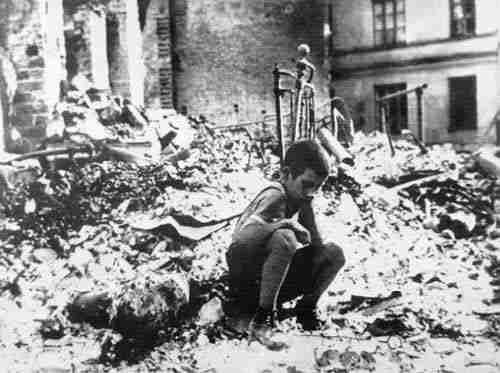
Apart from that there is still the Veit Stoss altar, which was originally made here in Nuremberg, a purely German work. The Fuehrer wished that this altar should come to the Germanisches Museum here in Nuremberg--with that I personally had nothing to do. I merely know about it. What was intended to be done with it finally had not yet been stated. But it is certain that it also would have been mentioned in negotiations for peace.
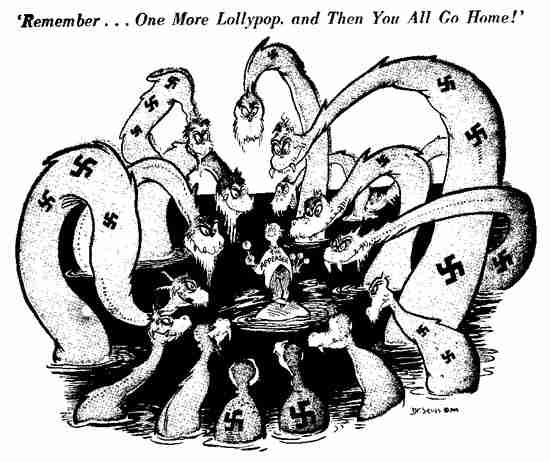





The Nuremberg Tribunal Biographies
Caution: As always, these excerpts from trial testimony should not necessarily be mistaken for fact. It should be kept in mind that they are the sometimes-desperate statements of hard-pressed defendants seeking to avoid culpability and shift responsibility from charges that, should they be found guilty, can possibly be punishable by death.
Disclaimer:The Propagander!™ includes diverse and controversial materials--such as excerpts from the writings of racists and anti-Semites--so that its readers can learn the nature and extent of hate and anti-Semitic discourse. It is our sincere belief that only the informed citizen can prevail over the ignorance of Racialist "thought." Far from approving these writings, The Propagander!™ condemns racism in all of its forms and manifestations.
Source Note: The trial portion of this material, which is available in its entirety at the outstanding Avalon and Nizkor sites, is being presented here in a catagorized form for ease of study and is not meant to supplant or replace these highly recommended sources.
Fair Use Notice: This site--The Propagander!™--may contain copyrighted material the use of which has not always been specifically authorized by the copyright owner. We are making such material available in our efforts to advance understanding of historical, political, human rights, economic, democracy, scientific, environmental, and social justice issues, etc. We believe this constitutes a "fair use" of any such copyrighted material as provided for in section 107 of the US Copyright Law. In accordance with Title 17 U.S.C. Section 107, the material on this site is distributed without profit to those who have expressed a prior interest in receiving the included information for research and educational purposes. If you wish to use copyrighted material from this site for purposes of your own that go beyond 'fair use', you must obtain permission from the copyright owner.

